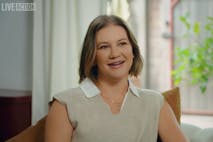
Ohio law protecting preborn babies with Down syndrome is still in place, and the media is angry
Nancy Flanders
·
Human Interest·By Anne Marie Williams, RN, BSN
New program aims to improve health care for people with Down syndrome
In honor of her late brother, a professor in the school of medicine at the University of Nevada-Las Vegas is pioneering a program to help families of people with Down syndrome coordinate all aspects of their medical care.
Dr. Kate Martin, an Associate Professor in the School of Medicine, is no stranger to the health care challenges that individuals with Down syndrome face. Her brother, Michael, had Down syndrome and died in 2020 at the age of 49. Martin saw firsthand that “despite being at higher risk for chronic health conditions, such as diabetes, hypertension and heart disease, (the intellectually disabled, and people with all forms of disability) receive fewer cholesterol screenings, blood pressure checks and other forms of preventive healthcare.”
Recognizing that “(these disparities) based solely on being a member of a socially disadvantaged group, are injustices,” Martin teamed up with colleagues in the school of medicine and other volunteers to create the new program, which “connects people with resources, offers care coordination, extends research opportunities, and will provide program clinical services in the future.”
READ: Basketball player with Down syndrome brings the team together
Martin commented, “The main problem that we’ve noticed is that families are left by themselves to navigate all the aspects of their loved one’s health and wellbeing, which can be overwhelming because they are often dealing with their own health issues. Although the ‘big things’ such as physicians, speech therapists, and other providers may be touched on by their primary care provider, the ‘little things,’ such as support groups, social skills training, tutoring, and respite care are left to families to figure out.” This is where the new program aims to fill the gap.
So far, the program is connecting families in the Las Vegas area with the resources they need, like how to navigate Medicaid, where to find respite care, and more. In the future, they hope to provide actual clinical services such as screenings for the medical conditions for which people with Down syndrome are at higher risk, such as heart disease, diabetes, and hypertension (high blood pressure) as well as hypothyroidism, osteoporosis, and Alzheimer-type dementia.
Live Action News frequently profiles the many ways that people with Down Syndrome are breaking barriers and defying expectations. As Martin’s work demonstrates, these individuals have particular and significant medical needs that our current health care system often doesn’t meet. An extra chromosome may lead to extra health challenges, but as these stories show time and time again, it also correlates with extra love, joy, and inspiration.
“Like” Live Action News on Facebook for more pro-life news and commentary!
Live Action News is pro-life news and commentary from a pro-life perspective.
Contact editor@liveaction.org for questions, corrections, or if you are seeking permission to reprint any Live Action News content.
Guest Articles: To submit a guest article to Live Action News, email editor@liveaction.org with an attached Word document of 800-1000 words. Please also attach any photos relevant to your submission if applicable. If your submission is accepted for publication, you will be notified within three weeks. Guest articles are not compensated (see our Open License Agreement). Thank you for your interest in Live Action News!

Nancy Flanders
·
Human Interest
Nancy Flanders
·
Human Interest
Isabella Childs
·
Human Interest
Bridget Sielicki
·
Human Interest
Nancy Flanders
·
Human Interest
Melina Nicole
·
Human Interest
Anne Marie Williams, RN, BSN
·
Issues
Anne Marie Williams, RN, BSN
·
Analysis
Anne Marie Williams, RN, BSN
·
Analysis
Anne Marie Williams, RN, BSN
·
Issues
Anne Marie Williams, RN, BSN
·